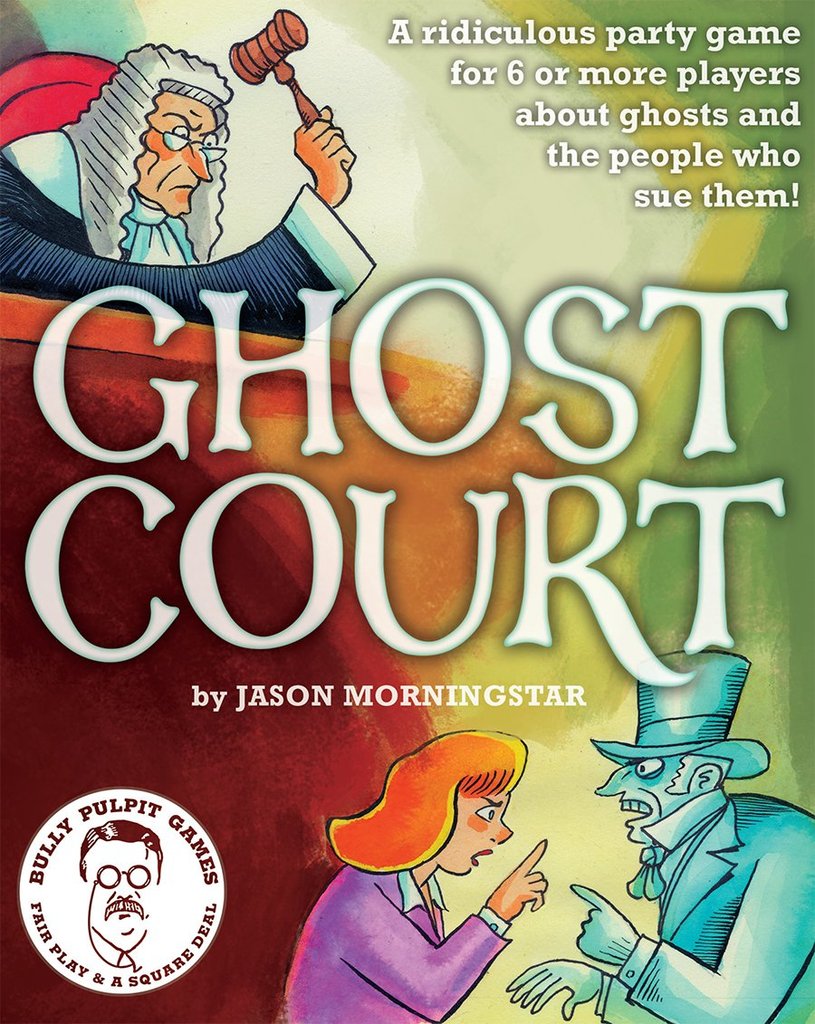I started to feel that I didn’t know roleplaying games well enough so I came up with the plan to read a roleplaying game corebook for every year they have been published. Selection criteria is whatever I find interesting.

Ghost Court describes itself as a “ridiculous party game”. It’s a small larp or a freeform game published in the form of a little game box. It contains a small rules booklet and a deck of cards where much of the design is contained.
The game revolves around a small claims court where the living and the dead can come together to sue each other for petty grievances. The concept is legible from a Finnish standpoint but it feels like it’s rooted to some degree in American culture of litigation.
The game is fun. The setup is freewheeling, with a small number of standard characters (judge, bailiff, clerk, reporter, claimant and defendant) who can be rotated among the participants as the claims are judged. Other participants or bystanders can sit in the audience. There’s an optional rule for creating a jury.
The great strength of the game is in this adaptability. Since everyone is assumed to understand how a small claims court works in broad strokes, people can shift in and out of different roles with little difficulty. Player numbers can go up and down even in the middle of the game. It feels like this could easily be a rolling attraction at a games con, the court functioning even as everyone participating in it gets rotated out.
The claimants, defendants and cases are all explained in the cards. As the game runs, you can just give the relevant cards to whoever needs them at the moment and they’ll absorb the information they need quickly and efficiently. As an example, a ghost who’s 150 years old yet died when he was 20. He’s suing an adult establishment because he was barred from entry. The strip club maintains that they have a legal obligation to enforce an age limit of 21.
Who’s right, who’s wrong? The court has to decide. There’s an interesting additional detail in that ghosts don’t have money. This means that settlements, especially ones that seek to please both parties, have to get more creative than just distributing money and damages.